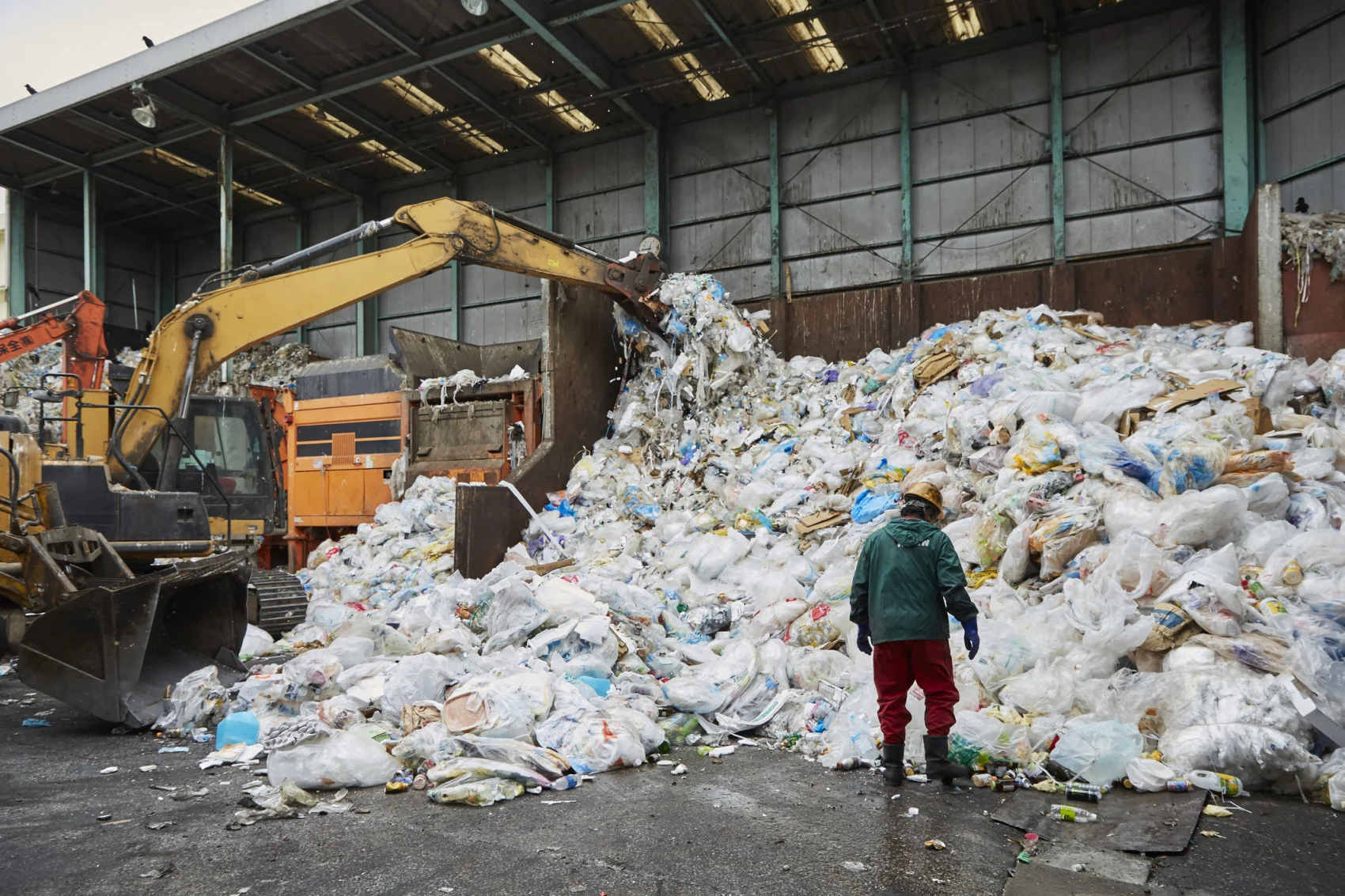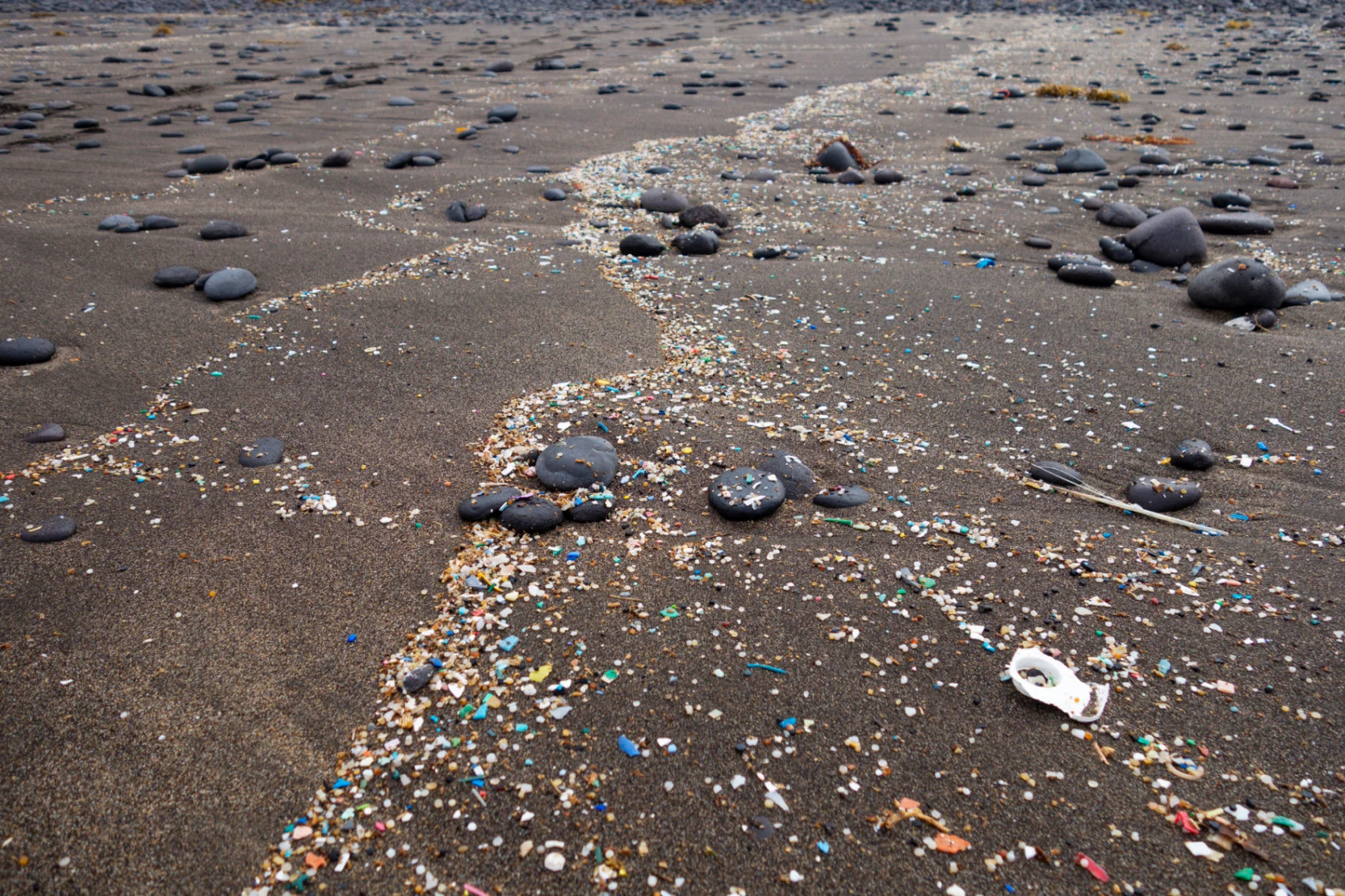
Global treaty to limit plastic needed to protect human and planetary health
Plastic pollution threatens human health and stability of the Earth’s systems, which is why Canada, U.S., and 100 other countries are calling for a global plastics treaty.
Plastic pollution is found everywhere researchers look: from the remotest parts of the Antarctic, to the summit of Mount Everest, to the deepest oceans. Researchers have reported an average of 365 microplastics particles falling from the sky each day per square metre of land in a remote mountain region.
“Microplastics are a new atmospheric pollutant … It’s all a bit terrifying,” stated Deonie Allen, a lead researcher of airborne microplastics working at Eco-Lab at the National Polytechnic Institute of Toulouse in France.
Millions of tons of discarded plastic bottles, food packaging, and bags break down into micro- and nanoplastic particles (MNP). These are found in the air we breathe, the water we drink, the food we eat. Each of us could be ingesting a credit card-sized amount of microplastics every week, according to a study released in 2021.
The known and potential human health impacts of ingesting MNP include:
59 per cent decline in male fertility since 1973 has been linked to exposure from hormone-disrupting chemicals that are common in plastics.
Men with the highest concentrations of phthalate plasticizers in their urine, were more likely to die of heart disease than those with lower levels.
People suffering from inflammatory bowel disease (IBD) had 50 per cent more plastic particles in their feces. These particles came from plastic bottles, food containers and packaging, a study reported.
Animal studies show MNP disrupts intestinal function by altering gut microbiota, damages cell membranes, impedes biological pathways, and more.
Plastics and associated chemicals pose a threat not only to human health but to the integrity of the global ecosystem, warns an international panel of experts in a new study.
Yet, plastics are novel substances and their impacts on the Earth’s systems remain largely unknown. The staggering volumes released into the environment — 370 million tons of new plastic is manufactured every year, with less than 10 per cent recycled and 12 per cent incinerated — are “having devastating impacts on planetary health”, said co-author Bethanie Carney Almroth from the University of Gothenburg in Sweden.

Microplastics washed up on a beach in Lanzarote, Canary Islands. (Westend61/ Getty Images)
To address the growing threat of plastic pollution more than 100 countries, including Canada and the U.S., along with major corporations and environmental organizations are calling for a global treaty. The United Nations Environment Assembly conference at the end of February is expected to establish an international negotiating committee to draft such a global plastics treaty.
More than 70 leading businesses and financial institutions, three-quarters of UN member states, say they want a strong, legally-binding treaty that will cap the amount of virgin plastic being made and control use of toxic chemicals that are added. However, large plastic-producing countries like Saudi Arabia and China currently prefer a waste-management approach, according to media reports.
RELATED: These ten plastic products account for 75% of all litter items in the ocean
Canada supports a legally-binding global agreement on plastics that “...takes a full lifecycle approach to address plastic pollution” and is working with Ghana to start treaty negotiations, the Office of the Minister of Environment and Climate Change told The Weather Network.
A lifecycle approach is a key point, as some countries want the treaty to focus only on waste management. Despite the urgency and wide agreement, a new UN treaty will likely take a year or two to negotiate.
Canada has an ambitious domestic commitment to producing zero plastic waste by 2030. Currently Canadians throw away three million tonnes of plastic waste, less than 10 per cent of which is recycled. Six common single-use, plastic products often found in litter will be banned by the end of the year: plastic checkout bags, stir sticks, six-pack rings, cutlery, straws, and food-service ware.
A coalition of 50 Canadian environmental organizations would like to see Canada move faster on curbing plastic pollution. “The proposed regulations should be expanded to include more items and have an accelerated timeline,” said Oceana Canada’s Campaign Director, Kim Elmslie.
The coalition is calling for the elimination of “all unnecessary single-use plastics by the end of the decade and make refillable and reusable packaging and containers more affordable and accessible across the country,” added Karen Wirsig, plastics program manager at Environmental Defence.
The public shares similar testaments. Two-thirds of Canadians say they want bans on plastic materials expanded to include polystyrene (Styrofoam), hot and cold beverage cups and others, according to a January 2021 poll.
“There are no current plans to phase out additional single use plastic items,” the Minister’s office said. However, there will be new requirements for certain plastics to contain a minimum of 50 per cent recycled plastic material.
“Recycled content requirements would help to reduce the amount of plastic waste that ends up in landfills and the environment, while also decreasing greenhouse gas emissions,” stated Steven Guilbeault, Minister of Environment and Climate Change in a statement.
Nearly all plastics are made from fossil fuels. The lifecycle from carbon emissions of the global plastic industry amounts to 1.9 billion tons a year, more than nearly every country except the China, the U.S., and India.
Thumbnail credit: Makiko Tanigawa/ DigitalVision/ Getty Images
